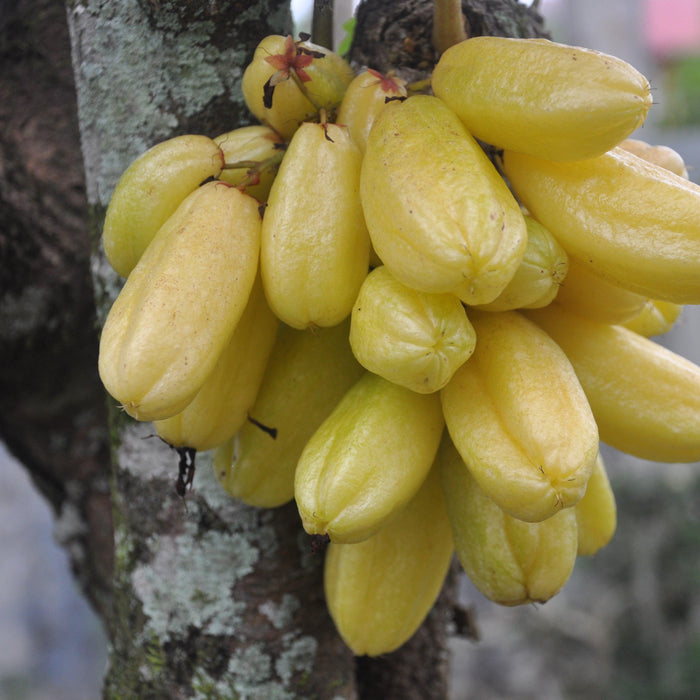

Description
- Common name:
- Belimbi, Belimbing, Sour Cucumber
- Regional name:
- Marathi - Bilimbi
- Category:
- Fruit Plants, Medicinal Plants, Shrubs, Trees
- Family:
- Oxalidaceae
-
1. Introduction to the Belimbi Fruit Tree
Scientific Name: Averrhoa bilimbi
Common Names: Belimbi, Bilimbi, Cucumber Tree, Tree Sorrel
The Belimbi fruit tree is native to Southeast Asia, including the Philippines, Indonesia, and Malaysia. It is a close relative of the star fruit (Averrhoa carambola) and is known for its sour taste and unique shape, resembling a small cucumber or gherkin.
2. Plantation and Growing Conditions
Climate: Belimbi trees thrive in tropical and subtropical climates, with temperatures between 68°F (20°C) and 95°F (35°C). They cannot withstand frost and require adequate sunlight.
Soil: Well-drained, loamy, or sandy soils with a pH range of 5.5 to 6.5 are ideal for Belimbi growth.
Propagation: Belimbi trees can be propagated through seeds or cuttings. Seeds should be planted in a well-drained medium and kept moist.
Spacing: Trees should be planted at least 20-25 feet (6-8 meters) apart to provide ample space for growth.
3. Care and Maintenance
Watering: Belimbi trees require regular watering to maintain soil moisture, especially during the early stages of growth.
Fertilizing: Fertilize the tree with a balanced, slow-release fertilizer, following the manufacturer's instructions.
Pruning: Regular pruning is essential to maintain a healthy and productive tree. Remove dead or damaged branches, and prune the canopy to allow for adequate sunlight penetration.
Pest Control: Monitor for pests such as aphids, scale insects, and mealybugs, and use appropriate treatments to control infestations.
4. Harvesting
Belimbi fruits are typically harvested when they are still green and firm, usually 3-4 months after flowering. The fruits will have a sour taste but can be eaten raw or used in various culinary preparations.
5. Health Benefits
Belimbi fruits are rich in antioxidants, vitamin C, and other essential nutrients. Some potential health benefits include:
- Boosting the immune system
- Aiding in digestion
- Reducing inflammation
- Lowering blood sugar levels
- Managing hypertension
6. Culinary Uses
Belimbi fruits can be used in a variety of dishes, such as salads, pickles, chutneys, and jams. They can also be used as a natural souring agent in traditional Southeast Asian cuisine.
7. Summary
The Belimbi fruit tree is an attractive and low-maintenance addition to tropical and subtropical gardens. With proper care, it can provide a bountiful harvest of unique, sour fruits with numerous health benefits and culinary uses.



